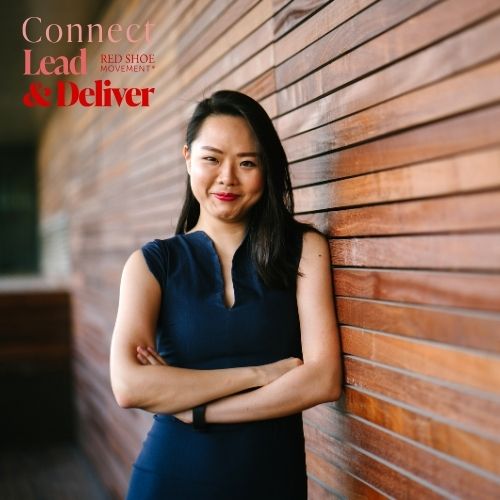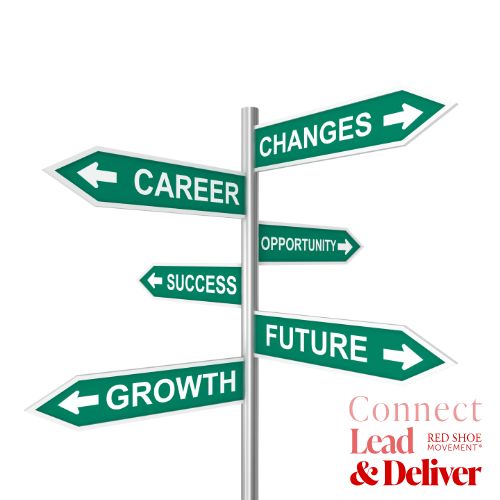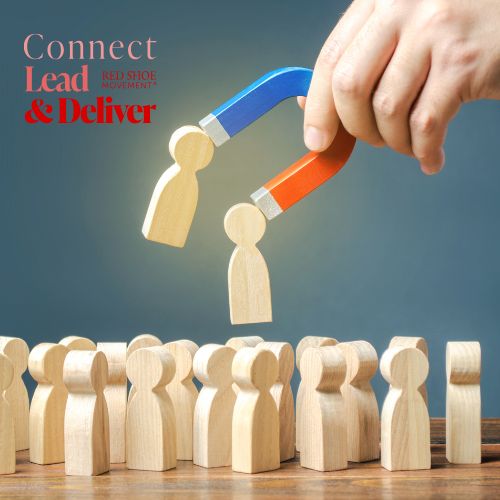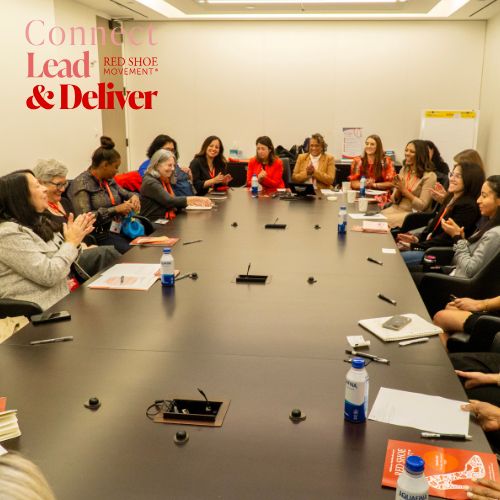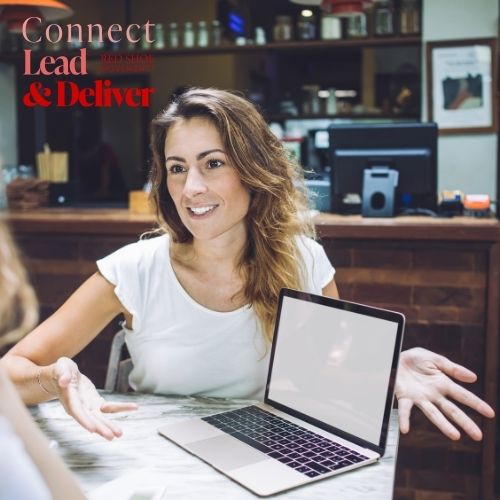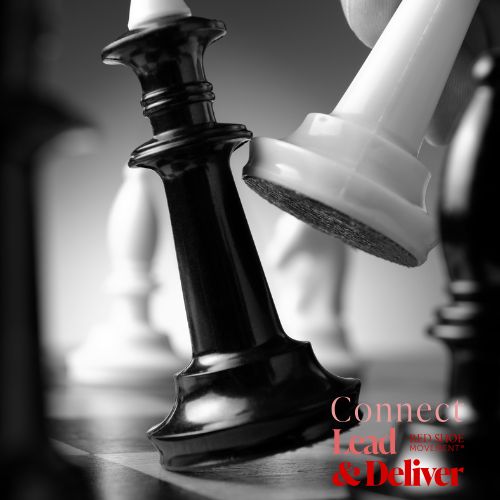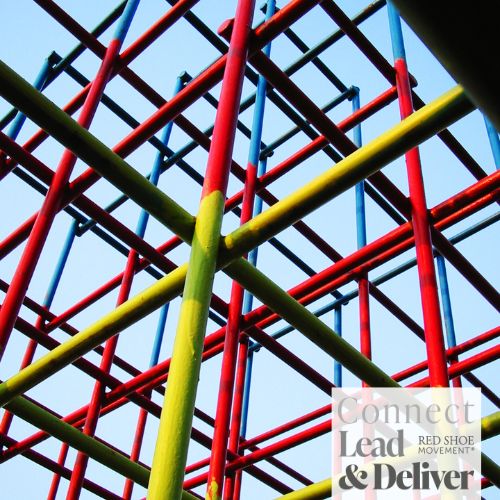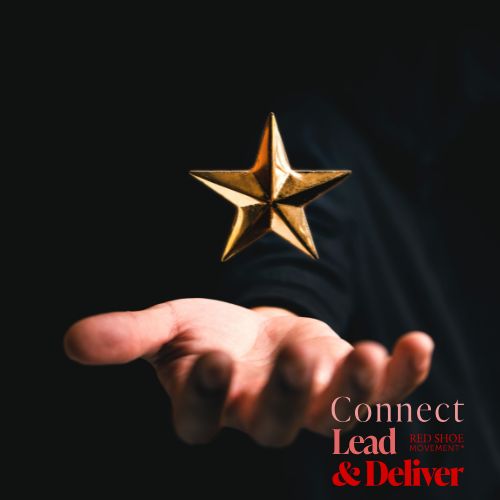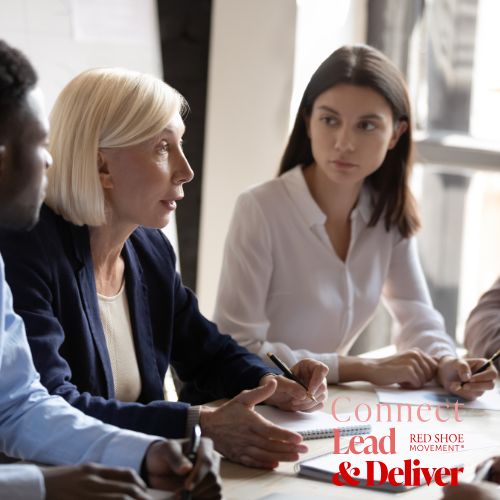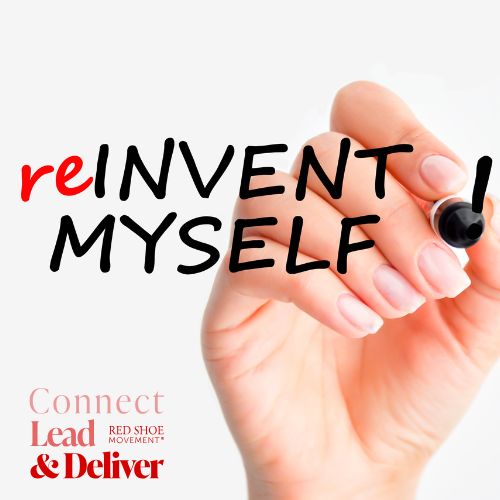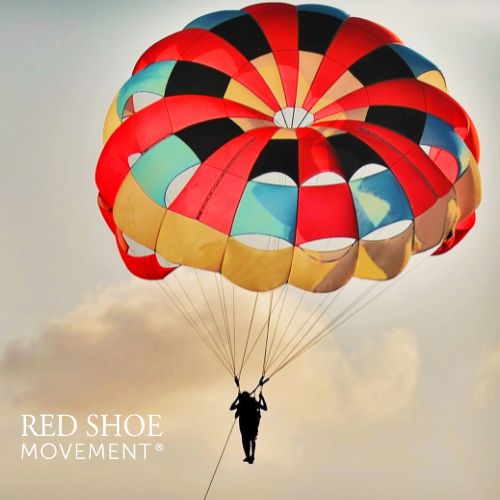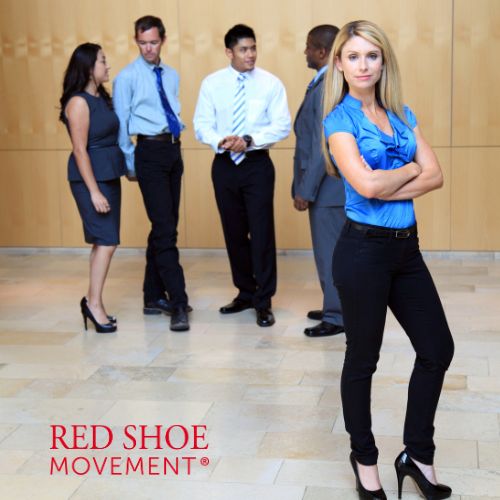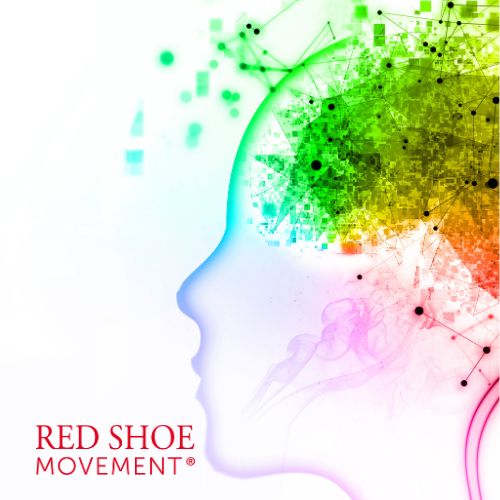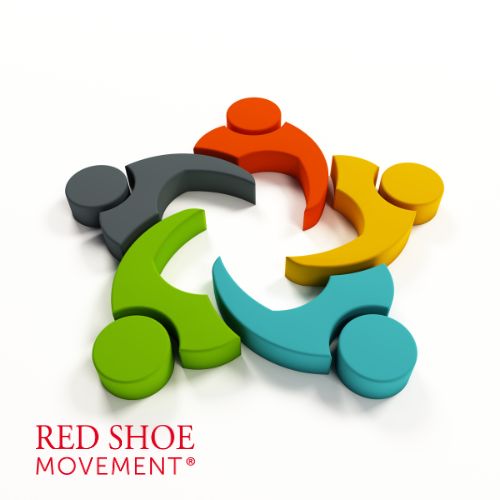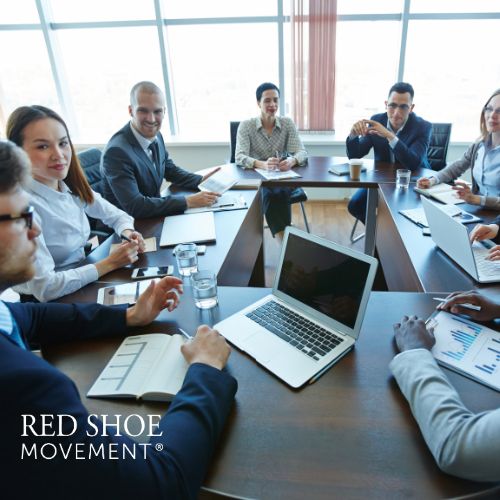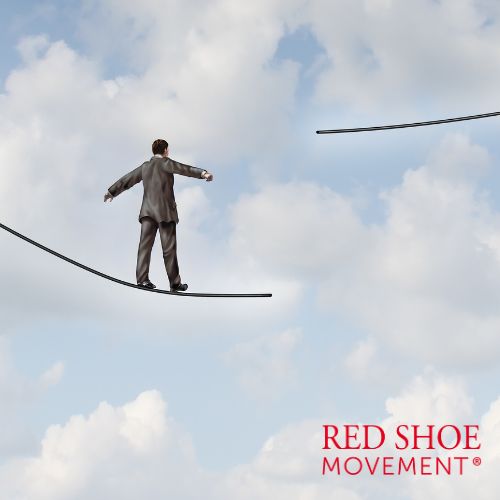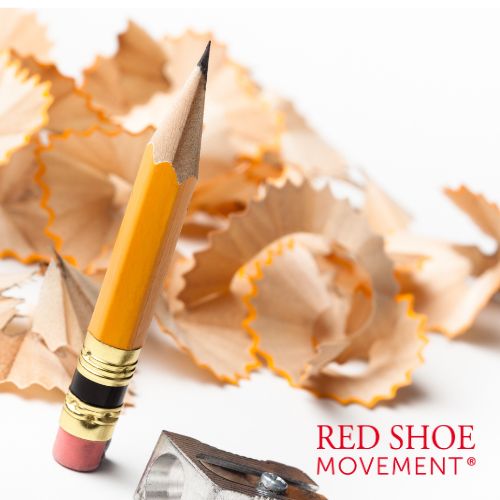Ugandan environmentalist Vanessa Nakate sees educating girls as a climate change solution.
The young activist has personally witnessed the devastation caused by the climate crisis in Africa and is intimately aware of how difficult it is for those who are most affected to be heard. Something that has only made her more determined to create opportunities and platforms for other voices like hers to reach those in charge. To make even those who feel disconnected understand that the time to act is now.
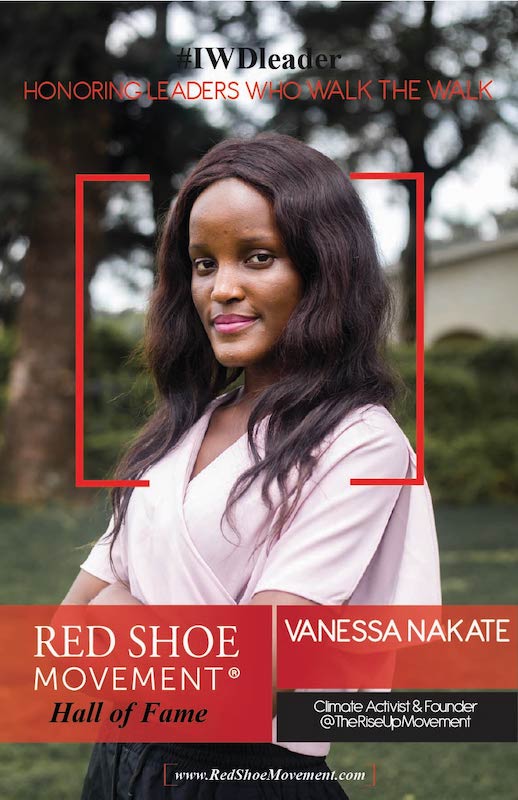
For relentlessly working towards change, awareness and educating girls as a climate change solution, the Red Shoe Movement honors Vanessa Nakate with the 2021 Hall of Fame.
RED SHOE MOVEMENT – In addition to demanding the urgent action needed to save the planet you work hard to amplify African voices and to help those already suffering the consequences of climate change. Tell us more about how your career as an activist started and the work you do. Who and what has inspired you? What are some of the projects you’re most passionate about?
VANESSA NAKATE – I remember in 2018, I wanted to do something that would cause change for the lives of the people in my community. I started to carry out research to understand the challenges that people faced and see how I could help making their lives much better with my actions or with my voice. It was at that moment that I found out that climate change is the greatest threat affecting the lives of the people in my country right now, threatening their livelihoods, food, and water availability. It was in this moment when I decided to become a voice and speak up for the people who are experiencing the effects of climate change right now.
I started to do more research on how to do this because I had no idea how to help the people in my country. This is when I found out about the Fridays for Future movement started by Greta (Thunberg). And being inspired by her school strikes, I decided to start striking for the climate as well. I would go every Friday and hold strikes. My very first strike was in the 1st week of January 2019.
In my journey as an activist, I have been passionate about creating as much awareness as possible about the challenges that we are facing. If you do not know that you are in a burning house, you won’t do anything to get out. However, if you know, you will do everything possible to save the people in that house. That is why it is important for me that awareness is created, and the crisis is communicated, so that we have more and more people speaking up against this issue and demanding climate justice.

I have also been passionate about reaching out to communities through clean ups and to school students to teach them about environmental conservation and what their role is in securing a future that is livable, healthy, and sustainable for all of us. It was through this that I started a project of installing solar panels and ecofriendly stoves. I am happy to say that we have done installations in 13 schools now. This is aimed to reduce the amount of firewood that schools use for preparation of food per school term. And this is only possible because of the ecofriendly institutional stoves. To further transition to renewable energy, I have also been passionate about doing these small actions. It is these small actions when put together that can transform the world and make it a better place for everyone. I have also been enthusiastic about demanding climate justice from the leaders, governments and speaking about the connection between climate change and every issue of our lives, from poverty to gender equality to hunger. It is important to understand that without climate justice we won’t be able to eradicate poverty, achieve zero hunger, or gender equality. People need to understand that the crisis that we face now affects every sector of our lives.
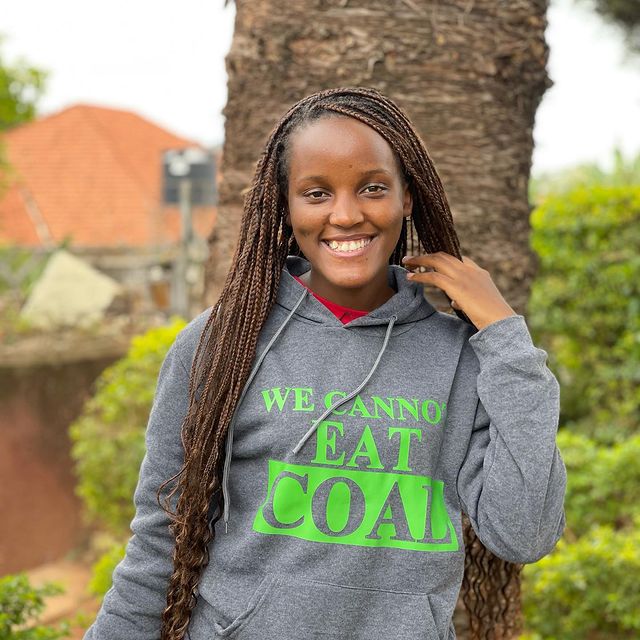
Urgency of Educating Girls as a Climate Solution
RSM – You’ve placed a lot of emphasis on educating girls as a climate change solution. How has climate change affected girls and young women specifically? What part does education play in climate change solution?
VN – Girls and young women are disproportionately affected by the climate crisis. I can speak from the experience of communities like mine. Society has dictated the roles of young women and often these roles fall in collection of water for their families, growing food in the farms and preparing of this food and it usually happens in the rural communities. When climate disasters happen, such as droughts, they are forced to walk long distances in search of water for their families because of the dry spells. As they trek the long distances they are exposed to dangers like backaches and gender-based violence. When they lose everything to flooding on their farms, they have to work double in order to recover the food that has been lost.
I come from a culture where girls are not allowed to climb trees because it would affect their dignity. In case of floods, the first response is to climb a tree and if girls don’t know how to do that because of society norms then they are likely to lose their lives. As for education, when families lose everything to the climate crisis, they are left unable to educate their children. And because the education of boys is a priority, many girls are forced to drop out of school. I remember reading an article about climate brides and it is through this that many girls are forced into marriages, because their families can’t take them to school anymore, and they expect a dowry when they marry. The climate crisis threatens girls and young women in many ways. Educating girls is a solution that is going to tackle inequality, reduce emissions and build resilience. Project Drawdown lists 100 things we can do to cut down emissions and, ranked the 5th most impactful solution, is education for girls and family planning. Education gives the knowledge that young women need to become leaders in society and drive change.
Women in STEM: 7 keys from a successful student
Environmental Racism and Climate Change
RSM – Can you tell us more about environmental racism and its effect on politically or culturally marginalized regions?
VN – When I hear about environmental racism, it reminds me of a personal experience when I was cropped out of a photo as well as my message left out. To me, it felt like erasure of my presence, voice, and story. This made me reflect and think about the young people from Uganda or across Africa who needed their voice to be heard but never got to make it. Even me, who had been in Davos, felt the exclusion. Environmental racism needs to be talked about in the climate movement because we cannot have climate justice without racial justice. Those who are at the front lines of the climate crisis are the least responsible for the climate crisis. Africa, as a continent, is responsible for only 3% of the global emissions and yet the people in Africa are facing the worst impacts of climate change, from hurricanes to floods, heatwaves, and droughts. And yet their voices are not listened to or amplified. And yet every activist has a story to tell, and every story has a solution to give, and every solution has a life to change. That is why, if we are to have climate justice, every voice needs to be heard and amplified. Environmental justice begins from amplifying the most affected communities, providing platforms, and implementing climate justice in these communities. We can’t have climate justice without racial justice.
RSM – What would you say are the toughest lessons you’ve learned as a young Ugandan environmental activist trying to raise awareness? What’s something you wish you had known from the start?
VN – One of the toughest lessons I have learned in activism is that of being able to take care of myself and I wish this was something I had learnt earlier, when I had just started activism. Activism involves a lot of work and moments of disappointments from leaders when they don’t take action. There are times you feel you are not being listened to. There are times when you feel devasted seeing that the climate crisis is here and affecting many people’s lives, and yet the leaders do not treat it as a crisis. This makes you feel depressed and frustrated. Self-care is important because we can better take care of the planet if we ourselves are okay.

How to Make Leaders Act?
RSM – What do you think is necessary in making not just world leaders, but everyone else understand climate change is not something looming in the future but a present threat that reality many are already struggling with?
VN – For people to understand that the crisis is here, they need to listen to activists from the most affected areas. They can easily explain the challenges they are facing. For example, in my country, I have seen the intensity of the droughts and flooding leading to destruction of homes, farms, and businesses. I can easily tell what is happening in my country. The best way to make people understand is to communicate the crisis, and that means listening to the voices of those who are facing brutal impacts of the climate crisis and amplifying these voices so that people understand the urgency and why it’s important that all of us treat the crisis as something happening right now, a reality.
True Leadership Is Knowing When to Lead and When to Follow
RSM – Tell us about the RISE UP Movement and the importance of making sure African voices are not lost in the conversation about climate change?
VN – RISE UP Movement was birthed from Youth for Future, which I started in 2019. At the beginning of 2021, we changed the name to RISE UP Movement. We hold leaders accountable and remind them that they have to face climate change and treat it as an emergency. To listen to the science and the voices of those speaking up. We organize community reach outs to educate the people in the communities so that we can explain to them why they are losing their crops and why there is extreme drought and rainfall. We organize teach ins in different schools in Uganda to help students understand what is happening, how they can contribute towards demanding climate action through speaking to their parents and friends about the climate crisis. We have also shared the stories and experiences of different activists through our blog of 1Million activist stories. RISE UP also has an ongoing project which involves the installation of solar panels and clean cooking stoves in schools I spoke about earlier. This is aimed to drive a transition to renewable energy in schools in Uganda and to reduce the amount of firewood used in schools.

























